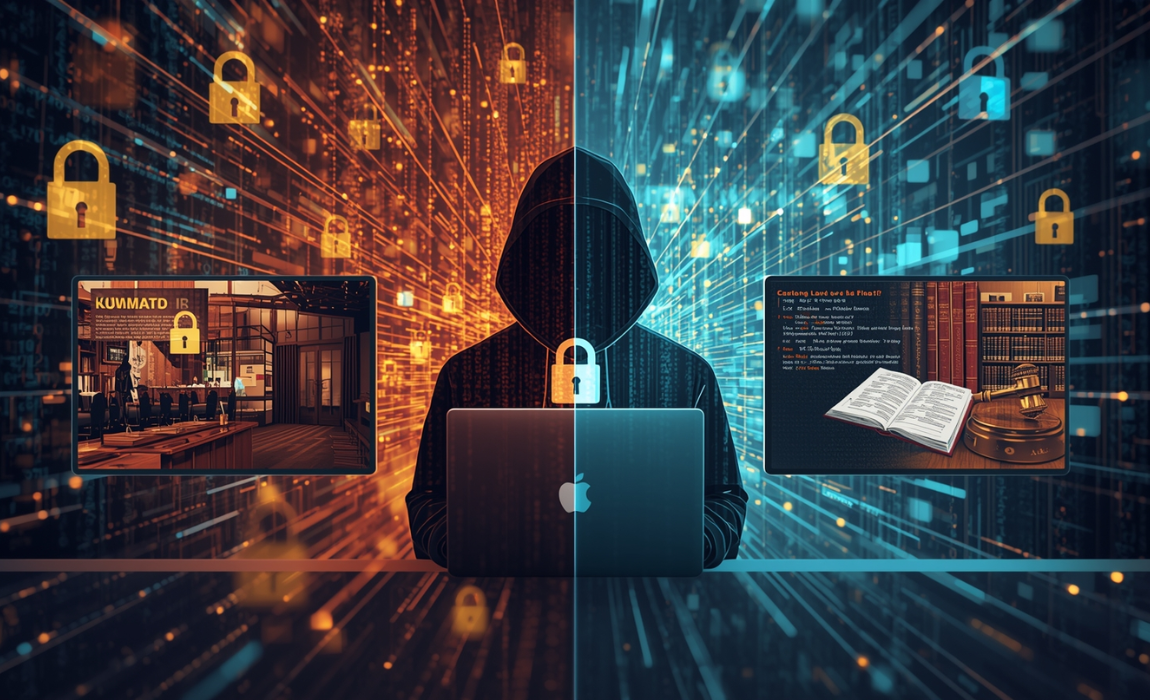
"Cybercrime in the Digital Age: Legal Challenges Ahead"
The internet has become as essential to our lives as electricity. Nowadays, practically everything we do is influenced by the digital world, from banking and shopping to education and entertainment. However, there is a negative aspect to this convenience as well: the increase in cybercrime. The techniques used by thieves to take advantage of technology are evolving along with it. The challenge before us is clear—our legal systems must evolve quickly to deal with crimes that exist in spaces where borders blur and identities are hidden.
Cybercrime is not a single problem; it is an umbrella term that covers a wide range of illegal activities. These include identity theft, online fraud, hacking, phishing, cyberstalking, ransomware attacks, and even state-sponsored cyber warfare. Unlike traditional crimes, cybercrimes are often invisible.
A single click on a malicious link can drain a bank account or compromise sensitive data. A hacker thousands of miles away can paralyze critical infrastructure like hospitals or airports. The damage is real, but the criminal may never step foot in the country where the harm is caused.
This borderless nature of cybercrime creates unique challenges for law enforcement and lawmakers. Traditional laws are built around physical territories, but the internet knows no boundaries. A fraud committed in one country can affect victims in another, making investigation and prosecution extremely difficult. International cooperation is vital, but countries often differ in their definitions of cybercrime, their levels of technological expertise, and their willingness to share sensitive data.
Another major challenge is the speed of technological change. Laws, by nature, take time to draft, debate, and pass. Technology, on the other hand, evolves rapidly. By the time a law is enacted, criminals may already have moved on to new and more sophisticated methods. This creates a constant game of catch-up, where lawmakers and investigators are always a step behind.
Privacy is another pressing concern. To fight cybercrime effectively, governments often seek more power to monitor digital communications and online behavior. But this raises difficult questions: How much surveillance is too much? Where should the line be drawn between national security and personal privacy? Striking the right balance between protecting citizens from cybercriminals and respecting their fundamental rights is one of the most complex legal dilemmas of our time.
Awareness among citizens is also a weak link. Many cybercrimes succeed not because of advanced hacking but because of human error—clicking on suspicious links, sharing personal data carelessly, or using weak passwords. Legal measures alone cannot solve the problem unless people are educated and equipped to protect themselves online. Stronger cybersecurity education in schools, workplaces, and public campaigns is just as important as tougher laws.
On the brighter side, governments and institutions worldwide are beginning to take cybercrime seriously. Many countries have passed dedicated cybercrime laws, set up specialized cyber police units, and invested in forensic technology to track digital footprints. International treaties, like the Budapest Convention on Cybercrime, are attempts to bring countries together in the fight against online crime. At the same time, tech companies are also stepping up, investing in stronger encryption, security patches, and tools to detect fraud.
The road ahead is not easy, but it is not hopeless either. The fight against cybercrime requires a three-pronged approach: stronger and adaptable laws, international cooperation, and public awareness. Without one of these pillars, the effort will remain incomplete.
In conclusion, cybercrime is the new frontier of law and order. It is invisible yet powerful, borderless yet deeply personal in its impact. As we embrace the digital future, our legal systems must be just as innovative as the criminals we seek to stop. The challenge is daunting, but with collective will, smarter laws, and greater awareness, we can build a digital age that is not only convenient but also safe.
